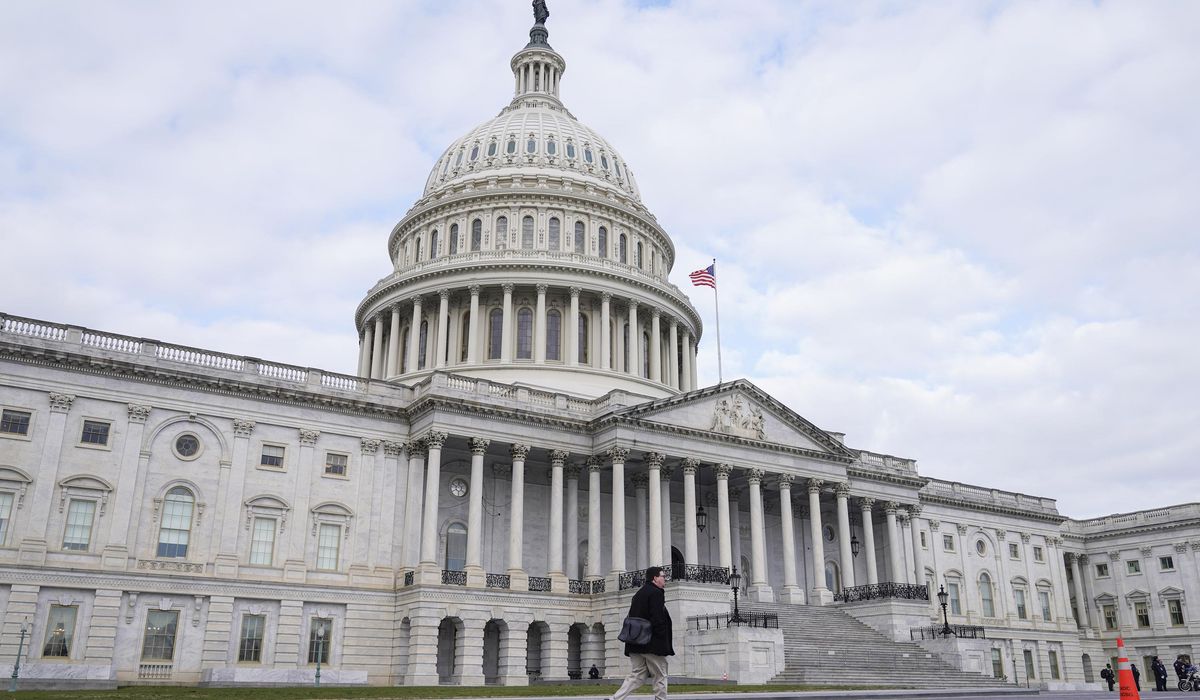


The Senate’s failure Thursday to advance a bipartisan tax bill expanding child and business tax breaks only adds to doubts about Congress’ ability to negotiate a broader deal next year on trillions of dollars in tax cuts that are set to expire.
Thursday’s test vote on the limited tax bill failed 48-44, with all but three Republicans — Sens. Josh Hawley of Missouri, Markwayne Mullin of Oklahoma and Rick Scott of Florida — voting against it.
Independent Sens. Bernie Sanders of Vermont and Joe Manchin of West Virginia, who caucus with the Democrats, also opposed the bill.
The legislation, negotiated between Senate Finance Chairman Ron Wyden, Oregon Democrat, and House Ways and Means Chairman Jason Smith, Missouri Republican, passed the House six months ago in an overwhelming 357-70 bipartisan vote.
The bill would renew expired business tax breaks that allow more generous write-offs for research and development, assets that lose value over time and interest expenses.
It would also expand the child tax credit to more low-income families by making the full $2,000 credit available to families that do not have a tax liability as a refund and allow them to claim the maximum credit for each child instead of just one.
Both the business and child tax breaks would have been retroactively applied to the 2023 tax year and set to sunset at the end of 2025, when trillions of dollars worth of tax cuts from the 2017 tax law Republicans passed under former President Donald Trump will also expire.
With the bill failing “there will be unfinished business that needs to be addressed, and hopefully addressed with some bipartisan urgency, which is sometimes a challenge in the Senate,” Sen. Todd Young, Indiana Republican, said.
Mr. Young voted against the bill because he felt Democrats were only bringing it up to score political points. But he has long said he supports the policies in it, particularly the more generous research and development expensing that he says would help U.S. companies compete globally.
The main complaint from Republicans was that the child tax credit expansion was designed in a way that would disincentivize work.
Several GOP senators also worried that giving any ground to Democrats on the child tax credit now takes away a key piece of leverage they may need to negotiate a deal next year on extending the Trump tax cuts.
“I am a little bit concerned that as [Democrats are] continuing to increase the amount of mandatory spending on things like refundable tax credits, that they would come back again next year and want more,” said Sen. John Cornyn of Texas, who is running in the three-way race to lead Senate Republicans next year.
Sen. Chris Murphy, Connecticut Democrat, said while he voted to advance the bill on Thursday, he felt the tax breaks were “too heavily weighted towards the corporate side” and his party should consider that in future negotiations.
“We should drive a hard bargain,” he said. “I don’t think there’s much of an appetite in this country for more big tax breaks for companies and their millionaire owners.”
Republicans are hoping they will have full control of Congress next year and that Mr. Trump will be back in the White House, so they can negotiate a tax deal among themselves, as they did in 2017. The GOP used the budget reconciliation process, which exempts certain tax and spending provisions from the Senate filibuster, to avoid having to rely on Democratic votes.
But no one knows yet how the November election will play out, and Mr. Hawley argued his party shouldn’t be gambling on political outcomes that are not guaranteed.
Republicans like Mr. Cornyn and Senate Minority Leader Mitch McConnell of Kentucky argued that if Mr. Wyden had been serious about working through Republicans’ concerns, he would have allowed the bill to go through the committee process and undergo changes.
Mr. McConnell cited the work issue in floor remarks proclaiming the bill “isn’t ready for prime time.”
Republicans “don’t like how more than ninety percent of the supposed benefits of the bill as written come as a $30-billion-dollar expansion of cash welfare instead of relief for working taxpayers,” he said.
• Alex Miller contributed to this report.
• Lindsey McPherson can be reached at lmcpherson@washingtontimes.com.
